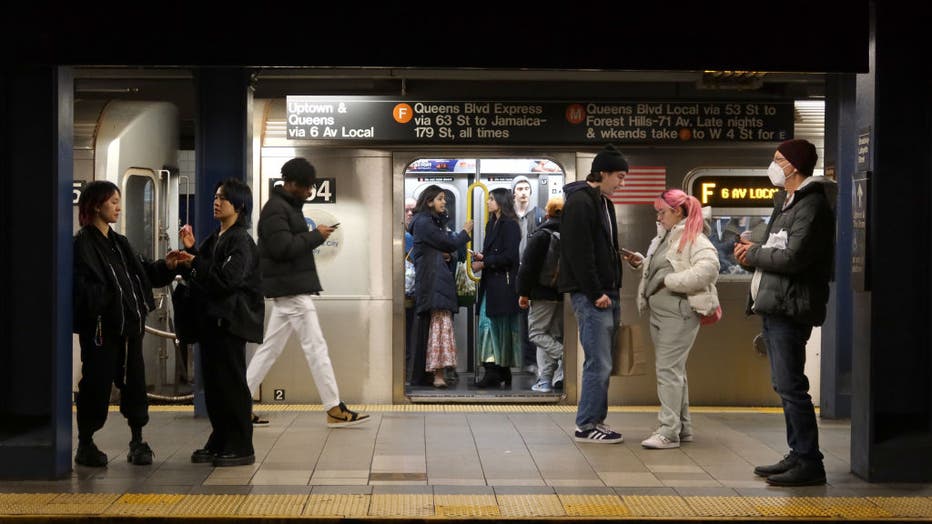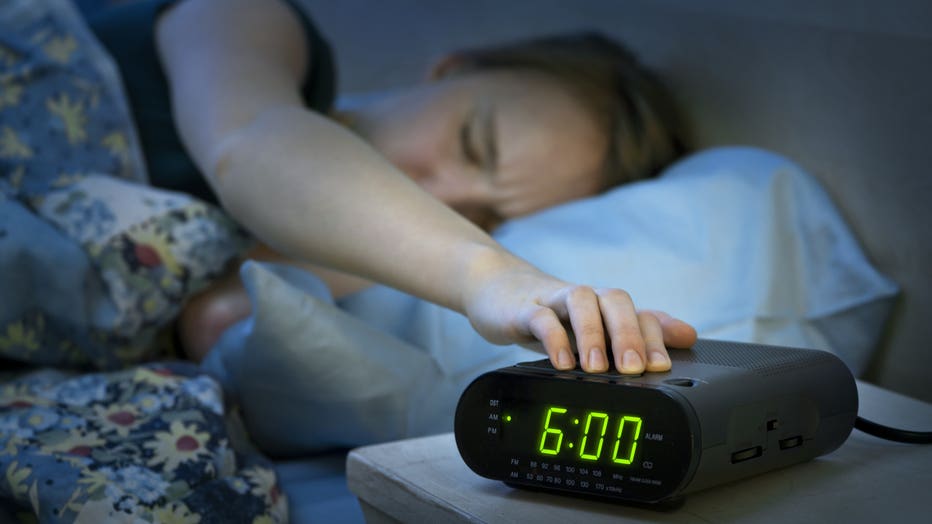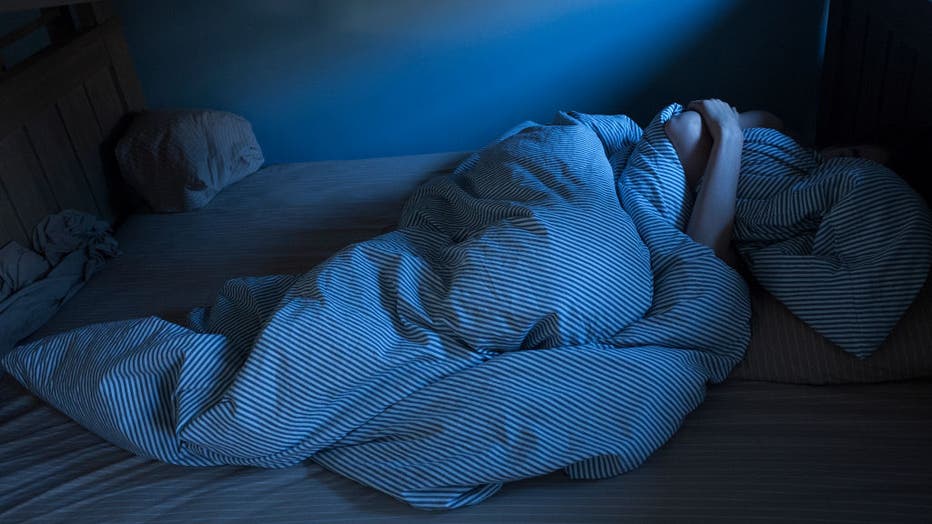Are New Yorkers getting enough sleep?
Woman sleeping alone in a bed. via Getty Images
NEW YORK - New York City may be known as the "city that never sleeps," but are New Yorkers getting enough sleep?
A poll from Gallup, released April 15, found 57% of Americans say they would feel better if they could get more sleep, while only 42% say they are getting as much sleep as they need. That’s a first in Gallup polling since 2001; in 2013, when Americans were last asked, it was just about the reverse — 56% saying they got the needed sleep and 43% saying they didn’t.
Younger women, under the age of 50, were especially likely to report they aren’t getting enough rest.
The poll also asked respondents to report how many hours of sleep they usually get per night: Only 26% said they got eight or more hours, which is around the amount that sleep experts say is recommended for health and mental well-being. Just over half, 53%, reported getting six to seven hours. And 20% said they got five hours or less, a jump from the 14% who reported getting the least amount of sleep in 2013.
(And just to make you feel even more tired, in 1942, the vast majority of Americans were sleeping more. Some 59% said they slept eight or more hours, while 33% said they slept six to seven hours. What even IS that?)
The poll doesn’t get into reasons WHY Americans aren’t getting the sleep they need, and since Gallup last asked the question in 2013, there’s no data breaking down the particular impact of the last four years and the pandemic era.
Dr. Matthew Ebben, sleep medicine specialist at Weill Cornell Medicine, said for New Yorkers it's "a mix" if they are getting enough sleep.
"One of the things we saw during COVID when a lot of people transitioned to at home work was that they were able to get more sleep," Ebben said. "As we transitioned back into the office, some people started to get sleep-deprived. There's a lot of factors as to why a person doesn't get enough sleep."
So why aren't we getting enough sleep?

People board an F-line subway train at the Broadway-Lafayette Street station on January 28, 2023, in New York City. (Photo by Gary Hershorn/Getty Images)
"A lot of times our apartments can be really noisy. Noisy neighbors, garbage trucks, lots of different environmental events can cause people a poor quality of sleep," Ebben said.
Ebben said there are a lot of different reasons why people aren't getting enough sleep, including:
RELATED: Sleepless in NYC: Does hitting the snooze button harm your health?
- Work responsibilities
- People who work multiple jobs don't get enough sleep
- Just not having enough time to sleep
"Sometimes people have very early wake times that may be inconsistent with their biological clock, what we call circadian rhythm," Ebben said.
What is the proper amount of sleep, and why don't we get that?

File photo
"Think about it this way. We know on average people need about 7–8 hours of sleep, but you would never go into the shoe store and ask for the national average size shoe. Right, so this is a normally distributed function, so there are some people who need less than 7 hours of sleep and there are people that need more than 8 hours of sleep," Ebben said.
Ebben said the best thing for you to do is to figure out how much sleep you need specifically.
The key is to systematically increase your time in bed until you feel alert and refreshed during the day, Ebben said.
Ebben said if you feel tired during the day, and you generally feel like your sleep quality at night is fairly high, he suggests to increase your time in bed by 15 minutes every five days.
"What's interesting is, if you spend too much time in bed, you can develop insomnia. As someone who works with patients, we're often trying to determine what the patients' sleep need," Ebben said. "It's all about making sure you get that balance right."
Let's say you woken up by alarm clock on weekdays and on weekends you sleep a lot longer. Maybe you feel like you need to take a nap during the day. That's usually an indication that you aren't sleeping enough on a nightly basis.
What are the indications that someone with sleep difficulties has an underlying serious medical condition?

BROOKLYN, NY - JANUARY 13: A teenage boy sleeps through most of the late morning on January 13, 2018 in his home in Brooklyn, New York. (Photo by Andrew Lichtenstein/ Corbis via Getty Images)
Ebben said if friends or family members tell you that you snore loudly.
If you snore loudly, Ebben said, it can be an indication that you aren't breathing properly during sleep.
Conditions like obstructive sleep apnea, which can be associated with loud snoring, can increase your risk of cardiovascular events like a heart attack or a stroke, Ebben said.
Even people who have high blood pressure should consider getting into a sleep lab or do a sleep study, Ebben added.
Tips for a better sleep

FILE-A man sleeps peacefully in a bed. (Photo by Education Images/UIG via Getty images)
If you notice that you are often waking up from noise in your sleeping environment, consider using earplugs or a white noisemaker. Ebben said this is helpful to mask out the noise to help you sleep better.
Another important factor for better sleep is the room temperature. If your apartment is too warm, Ebben said, that can interfere with sleep. Make sure the air conditioning is on the cooler side, which Ebben said will help you get a better sleep.
"It's important to think about your own personal needs. It can get you into trouble if you try to meet that national average," Ebben said. "Listen to how you feel, don't worry if you are a little bit above the national average of sleep need."
The Associated Press contributed to this report.

